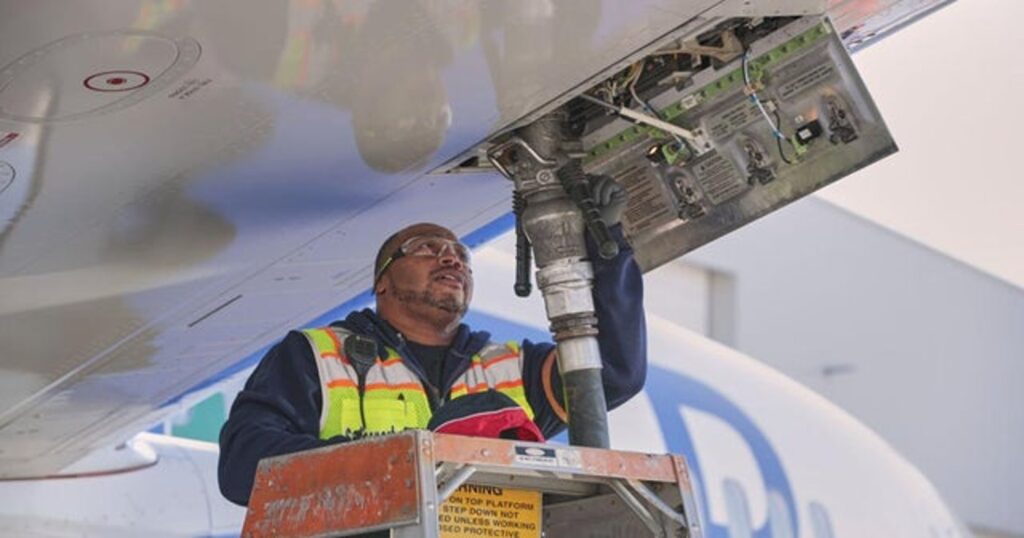
A United Airlines flight from Chicago O’Hare to D.C. Reagan National is nothing to write home about, but the 100 people who were aboard United’s recent Wednesday service were part of aviation history.
They were on the first passenger aircraft flight ever to be powered by 100% plant-based jet fuel, designed by Virent, and derived from agricultural waste like corn cobs and stalks.
Current legislation allows for aircraft to be powered only with 50% renewable fuels, and after completing a test flight without passengers in October, Virent and United were allowed to fill up entirely with the biofuel.
Performance indicators, according to the company, were the same as with fossil fuels.
One of the major advantages with Virent is the chemical similarities to petroleum-based jet fuels in terms of boiling point, thermal stability, and freeze points. This, the company hopes, means their biofuels can simply replace fossil fuels, but without replacing any of the infrastructure.
“Today’s flight is not only a significant milestone for efforts to decarbonize our industry, but when combined with the surge in commitments to produce and purchase alternative fuels, we’re demonstrating the… impactful way companies can join together and play a role in addressing the biggest challenge of our lifetimes,” said United CEO Scott Kirby in a Wednesday statement.
Aviation is sometimes quoted as being 2%-2.5% of global greenhouse gas emissions. Others have quoted it as 5% if one accounts for CO2-equivalents, and others put it at 3.5%.
Known as “synthetic aromatic kerosene,” Virent’s fuel turns plant sugars into an oil through a multistep, patented process that reduces greenhouse gas emissions when burned in flight by around 50%. It’s still in the research and development phase, funded mainly by Delaware’s Marathon Petroleum as a way of transitioning to a more carbon-neutral production strategy.
United Airlines will be partnering with Virent as it hopes to reach carbon-neutrality by 2050, and with their support Virent hopes to announce commercialization of the fuel in the coming months.
FLY This Progress to Green Friends on Social Media…




















